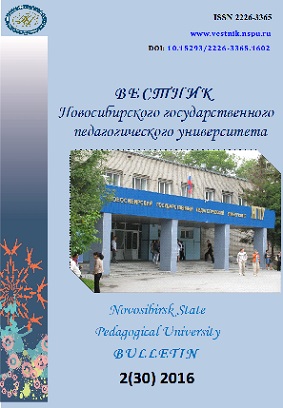Текстологические, лексикографические и лингвокультурологические аспекты музыкального дискурса в сети Интернет
Textological, lexicographic and cultural aspects of musical discourse in the Internet
Author(s): Nadezhda Maratovna Morozova, Alexey Alexandrovich ChernobrovSubject(s): Philology
Published by: Новосибирский государственный педагогический университет
Keywords: Musical terms; musical discourse; verbal associations; dictionary definitions; professional knowledge; background knowledge; psycholinguistics
Summary/Abstract: Musical discourse, as most of other genres of discourse, exists in tree forms i. e. profes-sional, laymen’s and mixed types. The analysis shows the difference between professional and laymen’s types of musical discourse. The laymen’s discourse is predominating in the Internet. Another observation is deterioration of professional musical language among the younger gen-eration. The authors consider the main types of musical terms – professional international ones as sforzando and terms derived from common words as root, key or third. Russian and English dictionary definitions of the terms are compared. The use of musical terms is illustrated by vivid examples. The general tendency is strong adaptation of musical texts to common readers and mass audiences with minimal use of terminology. There are two tendencies in use of musical terms in society. One of them is higher fre-quency of a limited group of most popular used in mass media. The other trend is gradual wash-ing away of terminology from mass media discourse, pragmatical adaptation of the text to the reader. Prevailing types of discourse are semi-professional and laymen’s types of language. Putting it in simple words, we observe a paradox – nearly everyone likes music, but nearly no one understands it properly. The Internet has not raised the level of regular musical knowledge, as has not raised level of knowledge of the English language. Internet English, as well as the musical Internet discourse is degenerating into a pigeon.
Journal: Вестник Новосибирского государственного педагогического университета
- Issue Year: 6/2016
- Issue No: 2
- Page Range: 138-149
- Page Count: 12
- Language: Russian

